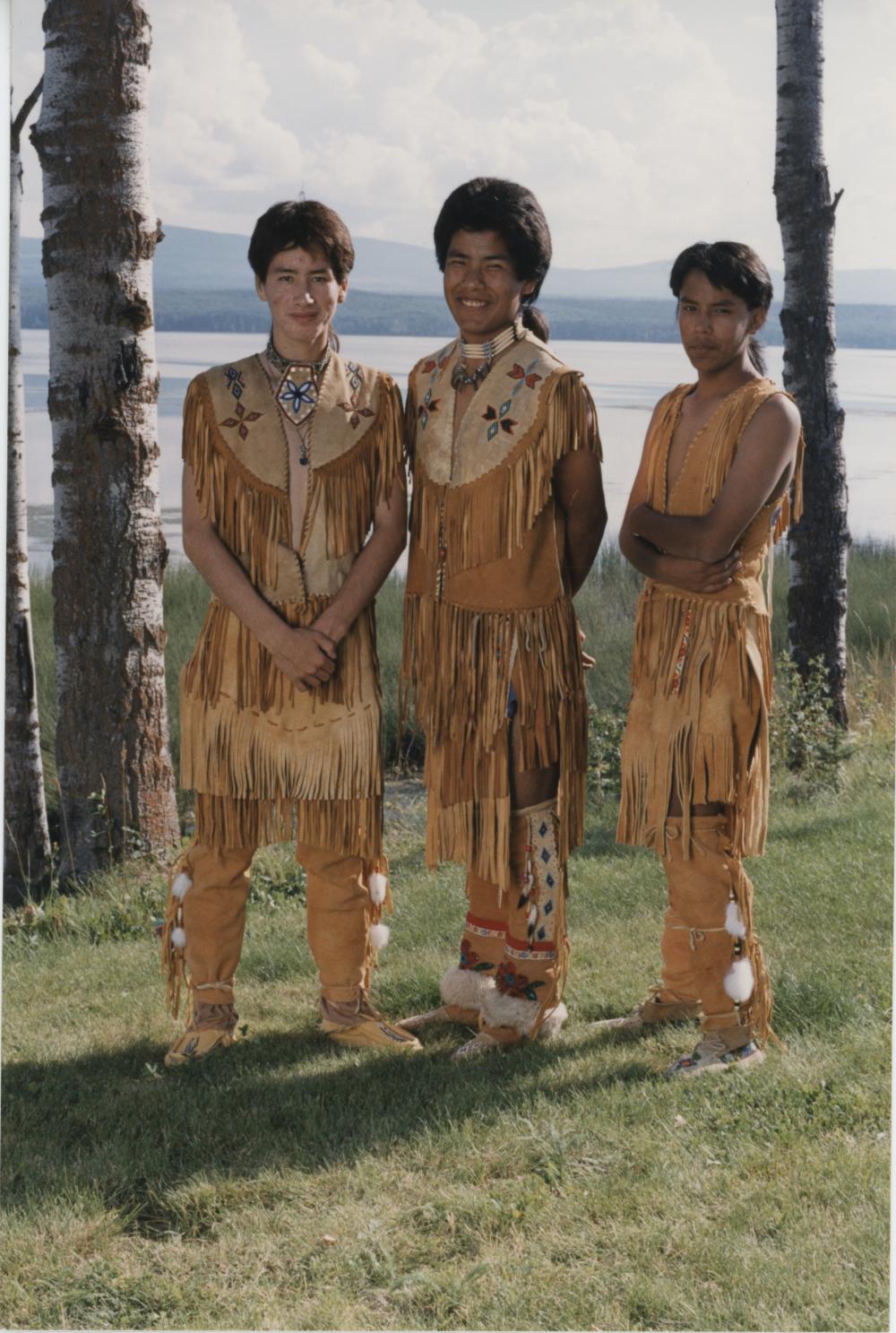Resources
CSTC Archival Toolkit
There has been an ongoing need among CSTC Member Nations and other First Nation communities in general for a basic resource to help guide decisions and best practices when dealing with records within their own communities.
In September 2022, CSTC Librarian/Archivist Rachel Knudsen coordinated a professional internship between UBC iSchool and CSTC, which resulted in the placement of graduate student Grace McRae. The focus of this 3 month internship was to determine the most pressing needs regarding archival records within First Nations communities, and more specifically the CSTC Member Nations. The main deliverable of this internship is the CSTC Archival Toolkit, which was compiled after undertaking an in depth investigation of available resources and determining common topics that needed more coverage.
The CSTC Archival Toolkit was approved by the CSTC Board of Directors as an official CSTC Library and Archives resource in March 2023, and is now available for use and distribution to CSTC communities and on a broader scope to all First Nations peoples.
Flying Mission Genealogical Records
In January 1998, the Roman Catholic Diocese of Prince George granted permission to the Carrier Sekani Tribal Council to obtain copies of and use their in-depth genealogical records of the Carrier and Sekani People. Formally titled thePrince George Diocese Genealogy of the Carrier and Sekani People, the records have informally been called the Flying Mission Records, as the Flying Missions were what the Roman Catholic Church named the Catholic Missions that served some of the more remote CSTC First Nation communities before there was adequate road access.
In more recent years, through a partnership with UNBC’s Northern BC Archives, CSTC was able to oversee the migration of these records from an inaccessible and obsolete genealogy program to an accessible digital format. This was a great accomplishment, and strengthened Dakelh and Sekani peoples’ connection to both their ancestors and to their traditional territory.
Access to these records today is available through the CSTC Library and Archives. Please contact for more details.
Yinka Dene Language Institute
The Yinka Dene Language Institute was founded in 1988 by the Carrier Sekani Tribal Council, the College of New Caledonia, School District 55 (Burns Lake), School District 56 (Nechako) and School District 28 (Quesnel). Tl’azt’en Nation Grand Chief Edward John was its first President.
In 1995 the University of Northern British Columbia joined YDLI. School Districts 55 and 56 have amalgamated to form School District 91 (Nechako Lakes). School District 91 resigned from YDLI as of January, 2000.
YDLI has run a training programme for language teachers, has produced a variety of publications, mostly aimed at children, and has conducted a number of research projects. YDLI also maintains a library and archives of audio recordings, video tapes, and photographs which can be found in the CSTC Library and Archives.
Many language publications are available for distribution to CSTC communities and membership. Please contact for more details.
There has been an ongoing need among CSTC Member Nations and other First Nation communities in general for a basic resource to help guide decisions and best practices when dealing with records within their own communities.
In September 2022, CSTC Librarian/Archivist Rachel Knudsen coordinated a professional internship between UBC iSchool and CSTC, which resulted in the placement of graduate student Grace McRae. The focus of this 3 month internship was to determine the most pressing needs regarding archival records within First Nations communities, and more specifically the CSTC Member Nations. The main deliverable of this internship is the CSTC Archival Toolkit, which was compiled after undertaking an in depth investigation of available resources and determining common topics that needed more coverage.
The CSTC Archival Toolkit was approved by the CSTC Board of Directors as an official CSTC Library and Archives resource in March 2023, and is now available for use and distribution to CSTC communities and on a broader scope to all First Nations peoples.
Flying Mission Genealogical Records
In January 1998, the Roman Catholic Diocese of Prince George granted permission to the Carrier Sekani Tribal Council to obtain copies of and use their in-depth genealogical records of the Carrier and Sekani People. Formally titled thePrince George Diocese Genealogy of the Carrier and Sekani People, the records have informally been called the Flying Mission Records, as the Flying Missions were what the Roman Catholic Church named the Catholic Missions that served some of the more remote CSTC First Nation communities before there was adequate road access.
In more recent years, through a partnership with UNBC’s Northern BC Archives, CSTC was able to oversee the migration of these records from an inaccessible and obsolete genealogy program to an accessible digital format. This was a great accomplishment, and strengthened Dakelh and Sekani peoples’ connection to both their ancestors and to their traditional territory.
Access to these records today is available through the CSTC Library and Archives. Please contact for more details.
Yinka Dene Language Institute
The Yinka Dene Language Institute was founded in 1988 by the Carrier Sekani Tribal Council, the College of New Caledonia, School District 55 (Burns Lake), School District 56 (Nechako) and School District 28 (Quesnel). Tl’azt’en Nation Grand Chief Edward John was its first President.
In 1995 the University of Northern British Columbia joined YDLI. School Districts 55 and 56 have amalgamated to form School District 91 (Nechako Lakes). School District 91 resigned from YDLI as of January, 2000.
YDLI has run a training programme for language teachers, has produced a variety of publications, mostly aimed at children, and has conducted a number of research projects. YDLI also maintains a library and archives of audio recordings, video tapes, and photographs which can be found in the CSTC Library and Archives.
Many language publications are available for distribution to CSTC communities and membership. Please contact for more details.
